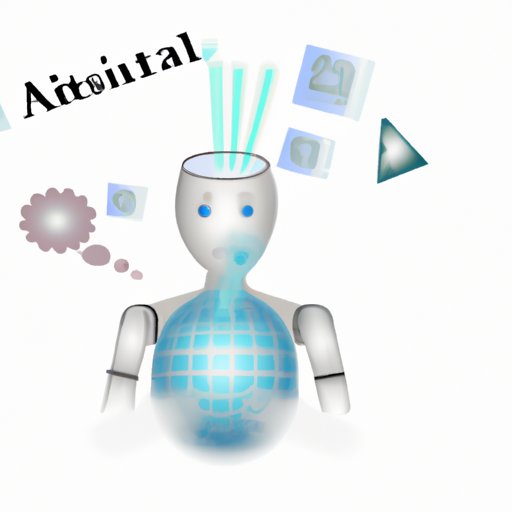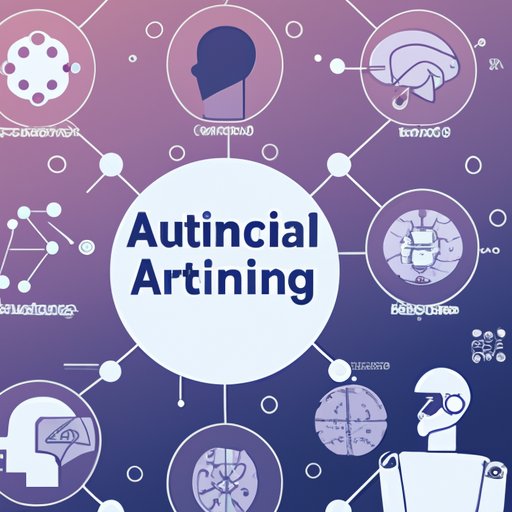Introduction
Artificial intelligence (AI) is a branch of computer science devoted to developing machines capable of performing tasks normally requiring human intelligence. AI has become increasingly sophisticated over the years, with a variety of new advancements being made in recent years. This article will explore the latest trends in AI and examine the potential impact of AI on society.

Examining Recent Advances in AI
Recent advances in AI have opened up a variety of new possibilities. In particular, there has been a surge in the development of machine learning algorithms, which allow computers to learn from data without explicit programming. Additionally, natural language processing (NLP) has become increasingly sophisticated, allowing computers to understand and generate human language.

Exploring the Latest Trends in AI
The most notable trend in AI is the emergence of deep learning, which allows computers to learn complex concepts by analyzing large data sets. Deep learning algorithms have been used to create systems that can detect objects in images, recognize speech, and even generate text. Other trends include reinforcement learning, which uses rewards to encourage AI systems to perform certain tasks, and generative adversarial networks (GANs), which use two neural networks to generate realistic data.
A Look at the Applications of AI
AI is being used in a variety of industries, from healthcare and finance to transportation and education. For example, AI is being used to develop personalized medicine, automate financial transactions, improve public transportation, and create intelligent tutoring systems. AI is also being used to help businesses make better decisions, reduce costs, and increase efficiency.
Analyzing the Impact of AI on Society
The potential impacts of AI on society are both positive and negative. On the one hand, AI could have a number of beneficial effects, such as increasing access to healthcare, improving public safety, and creating new jobs. However, it could also lead to greater inequality, displacement of workers, and privacy concerns. As AI continues to develop, it is important to consider the potential implications of its use.

Investigating the Future of Artificial Intelligence
Experts predict that AI will continue to advance rapidly in the coming years. According to a survey conducted by McKinsey & Company, “By 2030, AI could deliver additional global economic activity of around $13 trillion, more than the current output of China and India combined.” Additionally, AI is expected to play an increasingly important role in areas such as healthcare, transportation, and education. However, it is also important to consider the potential risks associated with AI and take steps to ensure a positive outcome.
Conclusion
In conclusion, AI is a rapidly evolving field with a variety of new advancements being made. AI is being used in a variety of industries, with potential benefits and risks for society. Experts predict that AI will continue to advance in the coming years, and it is important to consider the potential implications of its use. To ensure a positive outcome, it is essential to continue researching and monitoring the progress of AI.
(Note: Is this article not meeting your expectations? Do you have knowledge or insights to share? Unlock new opportunities and expand your reach by joining our authors team. Click Registration to join us and share your expertise with our readers.)
